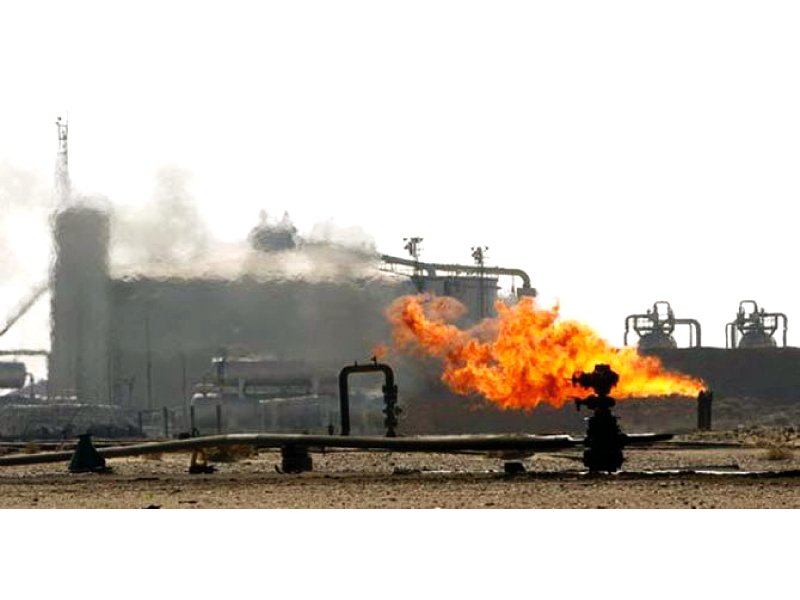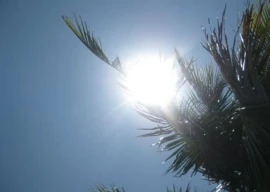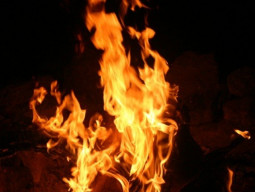
After a very long time, a petroleum exploration firm will look for natural gas reserves in Karachi, the port city of 20 million people, suggesting how difficult it has become to find much-needed fuel in other prospective parts of the country.
Pakistan Petroleum Limited (PPL) acquired a new block in Malir Town, located in the eastern part of the city, in the latest round of auction of exploration leases held in March.
It was 30 years ago when another such venture in what is known as the Karachi Block, located in the same vicinity, ended with initial studies showing disappointing results.
“Of course we are entering uncharted territories. It’s not every day you go to drill so close to urban population,” said Asim Murtaza Khan, CEO of PPL, while talking to The Express Tribune. “But this field is still going to be away from settlements. It’s located slightly to the north when you go up the Super Highway.”
Petroleum exploration companies face the daunting task of finding new reserves as most of the prospective areas of the country have already been explored. What remains to be searched is the treacherous, militancy-hit and expensive area of Balochistan.
This is pushing the companies to go for unconventional petroleum reserves, which require double the expenditure, sophisticated technology and has more chances of failure.
Malir Block will possibly have tight gas, which is trapped inside less porous rocks contrary to conventional tank-like reservoirs, said Khan who has been with PPL for 30 years.
Any seepage
Even before the first oil well was struck by Edwin Drake in Titusville, Pennsylvania, in 1859, oil prospectors had relied on seepages to find hydrocarbons. The story was the same in Saudi Arabia, Iran and elsewhere. What about Pakistan?
“For the past two years, PPL has been doing the ‘micro-seep’ survey. Seepages have been found in the border region of Balochistan and Khyber-Pakhtunkhwa,” said Khan, adding there was little reason to be excited about it.
“Technically, seepages are bad news because it means the underground reservoir is leaking. And we are talking about hundreds of millions of years,” he said. “But that also means that there is a reservoir somewhere in the vicinity. We just need to find it.”
When it comes to domestic resources, Pakistan has primarily remained a gas producing country. Oil output comes to just 66,000 barrels per day.
Organic deposits, which are a source for hydrocarbons, are different for oil and gas, said Khan. “What we have here in Pakistan is not similar to what you’ll see in Iran and the US.”
Pumping slowly?
Pakistan’s total recoverable gas reserves stand at around 14.772 trillion cubic feet whereas daily production averages at around 4,000 million cubic feet, often drawing criticism that petroleum exploration companies make billions but do not spend substantially for drilling more wells.
“Every field has its optimal production level. We can’t exceed that. Don’t you think we would want to take out more gas from Sui field? But it will start giving out water if we try harder,” he said.
Most of the fields also have water reservoirs, Khan explained. “Then there is the problem of falling pressure. Generally, a well has a radius of 1 kilometre. If we spud another well within that area then pressure drops at the first well.”
The best way to increase production is to find new reserves, he said.
Difficult times ahead
Exploration and production in Balochistan, where PPL wants to focus, is turning out to be a daunting task. Roads have to be built to reach the site because of rough terrains and moving workers and equipment all add up to the cost.
“Then when you look at the economics, the well doesn’t seem feasible,” said Khan. “We are no longer finding reservoirs like Sui and Qadirpur, which were basically large smooth tanks. Now we find gas trapped in narrow layers and fractures, which are difficult to reach.”
While the company has been employing new techniques like fracturing and horizontal drilling, it has begun to face trouble. “There can be issues like technical failures and we can’t do anything about that.”
Published in The Express Tribune, June 5th, 2013.
Like Business on Facebook to stay informed and join in the conversation.
COMMENTS (8)
Comments are moderated and generally will be posted if they are on-topic and not abusive.
For more information, please see our Comments FAQ

















@mindless:
Every body knows in Europe that PPL does not buy latest technological equipment, they just go to China and buy used 10 year old equipment.
Oil companies do not buy fracturing equipments. Fracturing jobs are tendered to service companies. There's nothing wrong in using a 10 yr old pump as long as it's able to generate a pressure above the fracturing pressure. I fail to see any reasoning in your arguments.
@Reader:
Shale reservoirs in US are at an average of 10000'. It's not shallow. Regarding the impact of fracturing on the environment, there has been no conclusive study which shows that. It's mostly hearsay. I think fracturing concerns in Pakistan revolve around the handling of waste water from fracturing operations, if they are handled properly, there is no issue.
@reader You quiet right, i can't say exact details what my experience is with PPL but be assured what info i am giving is extremely accurate. I agree shale gas and tight gas have same extraction system but equipment is different. What i know from my personnel work experience they are using the Shale gas equipment. In years to come you will seen water rise, sulfur, soil movement in Malir or adjacent areas. Now that is worrying for me. Just for instance they don't have 90 degree bendable bits for drilling. Or to be more exact, they don't even have high water pressure extraction for such type of gas. For Pakistan, most of the extraction of any natural resources is done on basis of mukk mukka deals. Trust me and mark my words 10 years down the line we will see what this PPL greedy sense will give us, and who will pay the cost, its you and me Pakistanis.
@mindless, fracturing is not only used for shale gas but also for tight gas (i m sure you know both are different). We have huge potential for both. Yes environment can be concern but luckily our tight reservoirs as well as shale gas reservoirs are quite deep, say in order of 3500 m. Will it still have environmental impact, I think its debatable. In US where shale gas is great cause of concern, its because their shale is very shallow. I think your mention of China is generalization and to what I know PPL is not correct. Go International.
I can't understand when there are many emerging plays around the world particularly in East Africa, why Mr. Asim Khan don't focus on International Exploration. Taking risk and timing is what oil industry is about not forgetting cost vs. benefit analysis. Imagine few bubbles of gas in Malir block vs TCF gas in East Africa.
Lets hope for some positive news.
It is so funny to read that companies in Pakistan are using technologies (Fracturing) which will destroy the ecological well being of Terrain. Fracturing is for Shale gas. Every body knows in Europe that PPL does not buy latest technological equipment, they just go to China and buy used 10 year old equipment. The reporter of this article should report some thing about this as these companies are getting away with destroying the real reserves of Pakistan.